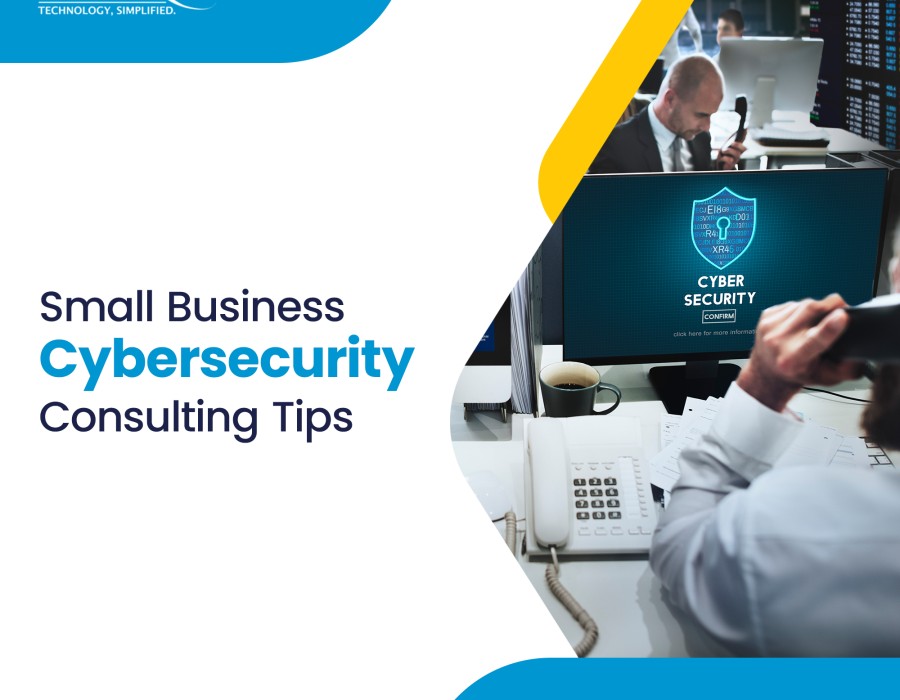Introduction
In today's digitally-driven business landscape, small businesses have become prime targets for cyber threats. As technology continues to shape operations, ensuring robust cybersecurity is no longer a luxury—it's a necessity. Cybersecurity consulting offers a lifeline for small businesses, equipping them with the knowledge and tools needed to defend against evolving cyber risks. In this comprehensive guide, we'll delve into essential cybersecurity consulting tips tailored for small businesses, empowering them to safeguard their digital assets, customer trust, and overall success.
Conduct Comprehensive Risk Assessment
Begin your cybersecurity journey with a thorough risk assessment. Identify potential vulnerabilities unique to your business. Consider factors such as data storage, employee access points, and third-party interactions. By understanding your risk landscape, you can prioritize your defenses effectively.
Small businesses are often targeted due to perceived weaknesses. Assess your cybersecurity posture to identify gaps and potential entry points for cyber attackers. Remember, knowledge is power, and a comprehensive risk assessment is your first line of defense.
Implement Multi-Layered Defense Strategies
Cybersecurity is not a one-size-fits-all solution. Employ a multi-layered defense strategy that combines various measures to protect your digital assets. Utilize firewalls, intrusion detection systems (IDS), and encryption to create barriers against unauthorized access.
Regular security audits play a vital role in ensuring the effectiveness of your defense mechanisms. These audits identify vulnerabilities and weaknesses, enabling you to fortify your defenses proactively. A layered approach ensures that even if one layer is compromised, other security measures remain intact.
Educate and Train Employees
Your employees are your first line of defense. Equip them with the knowledge and tools to recognize and respond to cyber threats. Regular training sessions on cybersecurity best practices, data handling, and password management are crucial.
Phishing attacks often exploit human vulnerabilities. By educating your employees, you create a human firewall that can thwart phishing attempts and other social engineering tactics. Encourage a culture of cybersecurity awareness, where every employee understands their role in protecting the organization.
Regularly Update and Patch Systems
Outdated software and unpatched systems are open invitations to cyber attackers. Regularly update your software, applications, and operating systems to address known vulnerabilities. Cybercriminals often exploit outdated software as an easy entry point.
Automated patch management tools can simplify the process of keeping your systems up-to-date. Stay informed about the latest security patches and updates for your software stack. Remember, a well-patched system is a fortified one.
Embrace Secure Remote Work Practices
Remote work has become the new norm, but it comes with its own set of cybersecurity challenges. Implement secure remote work practices, including the use of virtual private networks (VPNs) and two-factor authentication (2FA) for remote access.
Secure communication tools and collaboration platforms are essential for maintaining data security in remote work environments. Educate your remote workforce about the risks associated with remote access and provide guidelines for safe practices.
Secure Physical Assets and Devices
Physical security is often overlooked in the digital realm. Secure physical assets, such as servers and devices, to prevent unauthorized access. Restrict physical access to critical areas and consider implementing security measures like biometric authentication.
In a world where cyber threats are increasingly sophisticated, physical security remains a foundational component of a comprehensive cybersecurity strategy. Protecting physical assets complements your digital defenses and forms a holistic security approach.
Develop an Incident Response Plan
Despite best efforts, breaches may still occur. Prepare for such scenarios by developing a well-defined incident response plan. Outline the steps to take in case of a cybersecurity breach to minimize potential damage.
An incident response plan helps maintain control during a crisis, minimizing downtime and ensuring a coordinated response. Regularly test and update the plan to reflect the evolving threat landscape and technological advancements.
Collaborate with Trusted Partners
Cybersecurity is a complex field, and expert guidance can make a world of difference. Collaborate with reputable cybersecurity providers who offer specialized expertise, tools, and resources to enhance your security posture.
Trusted partners can perform security assessments, vulnerability testing, and provide insights into emerging threats. A strong partnership ensures that your small business benefits from the latest cybersecurity advancements without bearing the full burden of expertise.
Embracing a Cyber-Resilient Future
Cyber threats continue to evolve, making cybersecurity an ongoing endeavor. Embrace a culture of continuous improvement and adaptation. Regularly review and update your cybersecurity strategies to align with emerging threats and technological advancements.
Cyber resilience is not just about defending against attacks; it's about your ability to recover and thrive in the face of adversity. By staying vigilant and proactive, your small business can navigate the evolving digital landscape with confidence.
Conclusion
Small businesses are not immune to cyber threats, but they have the power to fortify their defenses. Through cybersecurity consulting tips, risk assessments, multi-layered defenses, and collaboration with experts, small businesses can safeguard their digital assets and customer trust. By fostering a culture of cybersecurity awareness and embracing ongoing improvement, small businesses can navigate the digital age securely and ensure their continued success.
As a business owner in New Jersey, the importance of cybersecurity is further underscored by the need for robust protection. With the rise of digital risks, accessing reliable cyber security services in NJ becomes imperative. By incorporating these consulting tips and aligning with experienced cybersecurity partners, small businesses can navigate the digital realm confidently, ensuring their data, operations, and customer trust remain well-guarded.





Comments